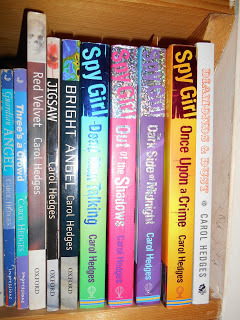Could YOU Write The Next Bestseller?

Good Housekeeping, that bastion of recipes you cut out but never make, and clothes meant for thinner, more glamorous women who are not you, is running another of its literary competitions. Last time, the comp was about self publishing, and I got very cross about it and wrote a cross blog. You can see the result here.
This latest comp (see title) is equally cross-making on many levels. Firstly, the equation of writing with ''bestseller'' is misleading as it suggests that there is very little kudos or purpose writing a book unless you intend it to join the 0.00000001% of those that have attained ''bestseller'' status.
Because ... nowhere is there any definition of what defines a 'bestseller'' apart from the implicit subtext that it equates with money: £250,000 ''advance'' is offered to the winner, plus 'advice' from an agent and a publisher. This advice will inevitably involve rewriting the whole thing, then altering and tailoring the book to fit the zeitgeist of the publisher's list. In other words, many such books are not written, they are created in-house.
You don't believe me? Most of the 'bestsellers' from 50 Shades to Harry Potter have achieved fame thanks to re-writes, coupled with the carefully structured publicity campaign of a crack marketing team. Some aspect of the writers' lives or experience has been seized upon and a narrative built around it. Exposure is everything. The classic example of this? My former editor at Usborne was one of the 25+ to reject the unsolicited mss of Harry Potter, before Ms Rowling got an agent, who was able to place the book. The editor did not even remember reading it. Go figure.
The comp also features three successful writers who offer some useful and sound advice to the would-be literary star. However, the words 'hits', and 'bestseller' and 'top of the book charts' occur with such frequency that it says more to me about their reason for being picked than the good advice offered.
Also, the comp makes no mention of the fact that many popular books have achieved their position solely on word of mouth. You read it, like it and recommend it to a friend. The buzz grows, the book sells, and suddenly the writer is topping Bookseller or Amazon lists. Nobody can set down the formula for that. Nor for the 'slow burn' book that might take years to rise from the general pool - though this is less likely to happen today, as publishers want fast results.
Nor is there any mention of the hard work most writers put in day by day to publicise their book. Sales do not happen by themselves. Sadly, there is also not a single mention of the fact that writing a 'bestseller' is by no means the end of it. Once fame and fortune has beaten a path to your door, you will be under immense pressure to write the ''next'' bestseller, followed by the one after that.
So do I think you should not aim high? Absolutely not. I believe you always write looking at the stars, but aware that your feet are planted on the ground. Would I have liked to have written a ''bestseller''? Maybe when I started out being published, yes. Now, with 12 published books and many more unpublished ones, I really don't care any more, deriving much pleasure from a reviewer that ''gets'' the book, or someone who has enjoyed reading it and takes the time to tell me. However, if you want to go in for the competition, go for it. Good luck, but keep a tight hold on your integrity.
If you would like to read a free sample of my new novel Diamonds&Dust, A Victorian Murder Mystery, you can do so here . US readers can do so here
Published on December 07, 2013 00:06
No comments have been added yet.



